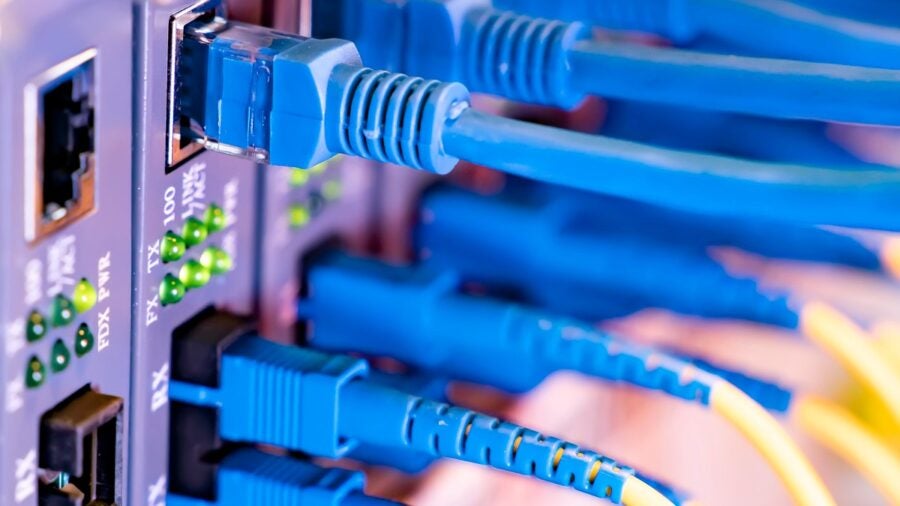
Distributed Denial of Service (DDoS) attacks are nothing new. These types of attacks disrupt organisations by overwhelming their systems with traffic, making them inaccessible to users. The most common way attackers achieve this is by flooding host servers and networks with excessive traffic, causing the host server to crash or fail to respond in a timely way.
Recently there has been a worrying increase in the intensity of such attacks and their impact on organisations. One study revealed that in the second half of 2023, only 22% of DDoS attacks were successfully mitigated, meaning an alarming 78% of incoming attacks were not. Moreover, the same study reports there were more than seven million DDoS attacks in the second half of 2023 – a 15% increase on the first half of the year – signalling a concerning trend from both security and cost perspectives.
DDoS protection on a network level is becoming a commodity – it’s not a luxury
“The landscape is changing quickly,” says William Manzione, product manager at global network service provider, Retn. “Anyone can become a target or can become instrumental for the DDoS attacks – meaning your organisation’s resources can be used as a tool to attack someone else.” However, there are methods for DDoS mitigation that organisations can adopt to shore up their networks from attack. As the common attack vector – where attacks originate or are delivered – companies need to adopt a ‘network-level’ approach to preventing DDoS attacks.
In the past, network security might have been seen as an indulgent addition or a nice-to-have for budget holders. But as we all know, today no organisation is immune to attack. Business decision-makers must therefore take time to understand their organisation’s risk profile. As part of that, they must then weigh up the potentially devastating consequences of an attack. DDoS attacks can lead not only to financial loss and reputational damage, but the loss of access to critical data across an organisation’s systems. By undertaking such an assessment, business leaders should see that it’s clearly not worth the gamble.
“DDoS protection on a network level is becoming a commodity – it’s not a luxury,” says Manzione. However, Manzione maintains it’s also up to network providers to ensure ‘security by default’, without putting customers in the position of choosing between securing their organisation or not. “Consider that twenty years ago, automatic braking systems (ABS) weren’t compulsory in new cars – they were sold as an extra. It then became the law that car manufacturers must include ABS as a standard feature. The same should apply to network security from service providers,” he says.
So, what is DDoS mitigation? Put simply, it can be viewed as a ‘bouncer’ for your network – only allowing certain traffic to enter in line with your needs, while prioritising and escalating certain potential threats when necessary. Retn recently launched a new DDoS mitigation platform, which combines cybersecurity with network level protection, increasing scrubbing capacity – the ability to stay online during attacks without losing service – for customers by 5000%.
At the same time, organisations receive alerts when they are under attack. So the solution protects the customer’s network, while helping to increase their awareness of their risk profile and any vulnerabilities. “We, as a backbone network service provider, have a responsibility to guarantee that our services are secure – for our customers, and our customers’ customers. We’re trying to meet the customer’s needs wherever they are,” said Manzione. “We want to see other network service providers do the same to make DDoS protection more affordable and more reliable, too.”
Network protection is a cornerstone of enterprise cybersecurity. And with network providers stepping up to provide customers with peace of mind as to the resiliency of their network, business leaders must also seriously consider the risk profile of their organisation, and the potential damage a serious DDoS attack will cause, as key motivators for investing in network protection.
For more information visit https://retn.net/

Distributed Denial of Service (DDoS) attacks are nothing new. These types of attacks disrupt organisations by overwhelming their systems with traffic, making them inaccessible to users. The most common way attackers achieve this is by flooding host servers and networks with excessive traffic, causing the host server to crash or fail to respond in a timely way.
Recently there has been a worrying increase in the intensity of such attacks and their impact on organisations. One study revealed that in the second half of 2023, only 22% of DDoS attacks were successfully mitigated, meaning an alarming 78% of incoming attacks were not. Moreover, the same study reports there were more than seven million DDoS attacks in the second half of 2023 – a 15% increase on the first half of the year - signalling a concerning trend from both security and cost perspectives.
DDoS protection on a network level is becoming a commodity – it’s not a luxury






